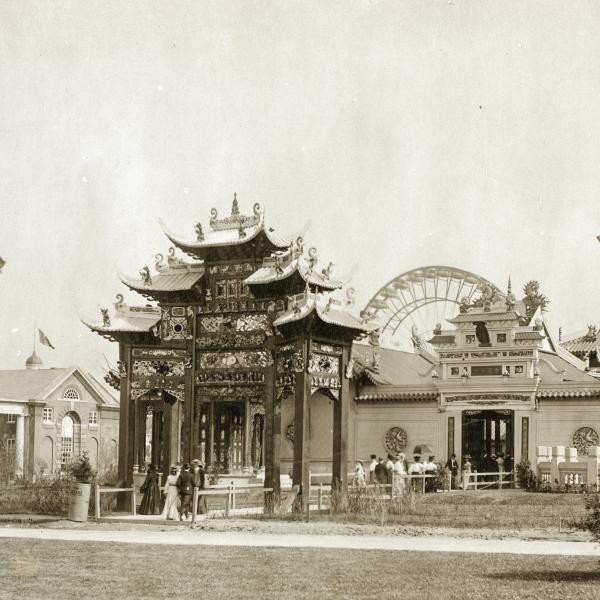David Weisner (WashU alumnus, '87) recently visited our campus to talk with students about career paths for those interested in living/working in Asia. We caught up with him after his talk to learn more about his career and how studying about East Asia has influenced his trajectory.
So just to begin, please tell me about where you worked and lived in Asia.
In total, I lived in Hong Kong for 15 years and in Tokyo for five years. Part of the time I was with an American law firm (White & Case) and part of the time I was with Citibank. I also was an exchange student in Shanghai while I was in law school.
Where are you working and living now?
I moved to Boston from Hong Kong nearly four years ago. I now work for Brown Brothers Harriman, which is a 200-year-old privately owned and managed financial services firm. We have three lines of businesses: Private Banking, Investment Management, and Investor Services.
My department, Global Tax Services, provides expertise and strategic solutions in the areas of tax research, tax operations, fund administration tax, and European tax reporting for global asset gatherers and financial intermediaries. Our team is located in Boston, Denver, London, Tokyo, Hong Kong, and Krakow. Day to day we work with our clients to structure effective tax treatments across a wide range of investment vehicles in 95+ markets.
Do you interact with clients in Asia?
Yes. We have many large Japanese- and Chinese-based banks that I interact with every day. I know they appreciate my experience of having lived and worked in the region. I also travel to the region for work as well.
What was your experience studying East Asia at Washington University like?
I majored in History and International Studies. I got interested in Asia after taking a Modern Chinese history class taught by Professor Kirby, who is now a professor of China studies at Harvard. By the time I was interested in all things Asia it was too late to switch majors, but I knew I wanted to work and live in the region.
Why should students study an Asian language today?
Asia is the largest region in the world, with 60% of the world’s population. Mandarin-Chinese is the world’s most commonly spoken language, while Japanese, and Korean rank in the top 20. Asia is the world’s economic powerhouse. Besides economics, the region also produced some of the leading music and movies. EALC students after graduation will be uniquely well-positioned for jobs in government, international relations, business, finance, tourism, entertainment, translation, teaching and the list goes on.
I feel so strongly about it that last year my wife and I endowed a scholarship for a need-based student studying EALC.
Do you have any advice for students thinking about working in East Asia?
Go for it.


